Monteverdi: L`Orfeo (Stubbs)
Introduction
A performance from 1997 of Monterverdi`s early 17th century opera, from the Amsterdam Muziektheater, on the subject that has fascinated composers ever since (most recently, Harrison Birtwistle - and it would be great if the ENO performance could come out on DVD!)
This is quite often spoken of as the `first` opera. Not necessarily the case, as there were a few before Monteverdi who married the drama and music of Italian street theatre 10 years previously but there are few who would argue that this is the first utterly memorable masterpiece of the form.
There are 5 Acts in this work, none of which are especially long, but perhaps reflecting the time of composition, when too much entertainment without breaks was seen as overindulgence.
The opera is introduced by the Spirit of Music who explains to the audience the power of music, and especially that of Apollo`s son, Orpheus.
Nymphs and shepherds (never far away from musical theatre in 17th century Italy) celebrate the fact that Orpheus and Euridice are to be married.
A short time afterwards, Orpheus and some of his entourage celebrate life, the universe and everything, and Orpheus explains how miserable life was before meeting Euridice. This is, of course, tempting fate, and at that moment, Sylvia appears and tells all that Euridice was bitten by a snake and died, mentioning his name with her last breath.
Orpheus vows to travel to the Underworld to reclaim his wife. He is accompanied by the Goddess of Hope who leaves him when they encounter Charon, the boatman who carries the dead over the River Styx. Orpheus attempts to persuade Charon to let him pass by singing to him, but this has little effect, and so he adds some lute playing, which sends Charon to sleep. Orpheus slips into Hell.
Proserpina, the wife of Pluto (the God of the Underworld) is so moved by Orpheus`s music that she persuades her husband to let Euridice return to Earth. Pluto relents, but on the condition Orpheus doesn`t turn around at any time on his journey back. Orpheus agrees but has his doubts that Euridice is actually behind him. He hears a loud noise, and swinging around to protect his wife, he sees her die in front of him. He is forced back to Earth alone. The spirits sing of the horrible consequences of passion overcoming logic. A fairly familiar feeling there.
Back above ground, Orpheus denounces all women apart from Euridice. Apollo descends to console his son, and they both rise to the heavens where Orpheus can see Euridice for eternity, etched out in the stars.
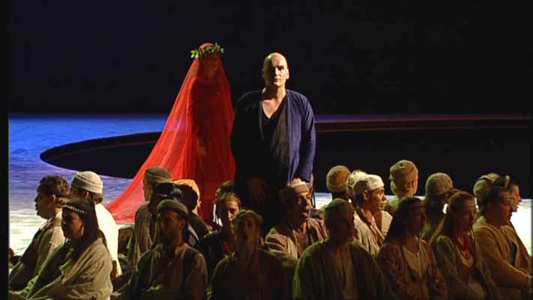
Video
The video is presented in PAL 16:9 Anamorphic, and is as clear as a bell. Much of the scenes are in rather subdued light, but there is no graininess evident and when the contrasts in lighting and colour are more obvious, nothing is lost.
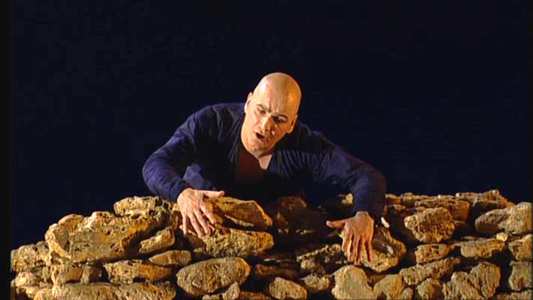
Audio
The sound (LPCM Stero or DTS) is admirably clear. There appears to be no problem with balancing the singers with the instrumentalists (apart from Pluto`s entrance, most likely not singing towards available microphones) which is a nice change from some opera procutions, although the smallish band helps. We do, however, experience several deep thuds when the cast stride over the raised stage and the audience obviously had an off-day with bronchial infections. These would generally be minor annoyances, but they don`t half get on your nerves here.
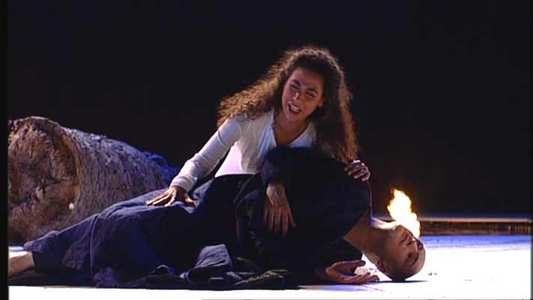
Features
Extras include the obligatory cast gallery (a picture of the cast on stage, their character name and their real name....exciting eh?), and an illustrated (stills from the opera) synopsis. In this production we are also treated to a woefully short (15 mins) `introduction` to the piece, with snapshot guides to the instrumentation, production and other juicy morsels that would be a wonderful accompaniment if it were stretched to an hour.
Together with the DVD there is a booklet containing a short essay by Stephen Stubbs on the opera, and the disc itself may be viewed with the usual mix of subtitled languages.
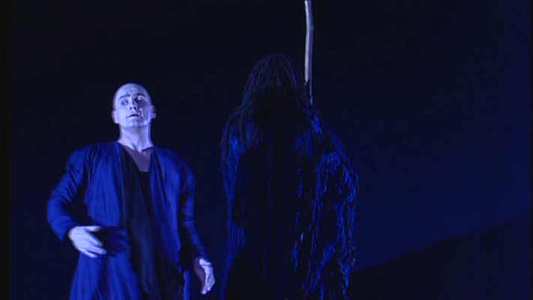
Conclusion
As I mentioned earlier on, Italian opera was developed from a form of street-theatre which had musical interludes included between dramatic sections. The composers of the time felt that it was possible to create a through-composed piece of music theatre that could keep the dramatic quality of the works and which would speak to an audience in the same way Greek theatre used to do many centuries previously. Music was gradually developed to make audiences feel the emotions of the drama on stage, and Monteverdi was almost certainly the first to merge the drama and the intermediary music so successfully, and from what we know about opera nowadays, it wasn`t a bad idea.
This performance of Orfeo is quite simply, fantastic. First of all, it`s a revelation to hear an opera with singers who hit a note straight away and then do something with it, but only if necessary. Any `Verdian` qualities would destroy the subtlety in Monteverdi`s writing, but there is no strutting and fretting around this particular stage.
John Mark Ainsley (Orfeo) sings with great dignity and feeling, and `Possente spirito..` (Act 3) is utterly compelling. This is, quite rightly, thought of as the centrepiece of the opera, and indeed one of the greatest pieces of music from the Renaissance, and Ainsley doesn`t put a foot (or a note) wrong, and the rest of the cast are equally as impressive - David Cordier (The Spirit of Music) especially so (if you want to hear a counter-tenor sing as they are supposed to, go no further).
Stephen Stubbs pointed out in the `Introduction` that Monteverdi`s `score` comprises of a melody line, a bass line and very little else, apart from some notes regarding instrumentation for certain characters at ceratin points in the proceedings. If this is his own orchestration, then it`s a damn fine job. The harmonies and complicated melodic lines are brought out vividly, and the playing of `Tragicomedia` is perfect.
In fact, having watched the performance twice (and then my favouite bits a little more), I`m going to have to recommend this thoroughly. Amsterdam does Monteverdi very well indeed!
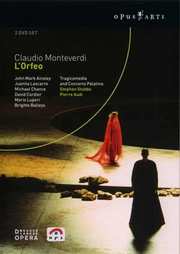
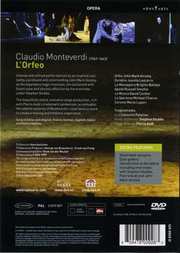




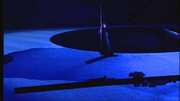
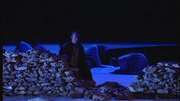
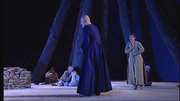
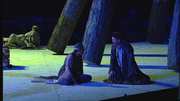
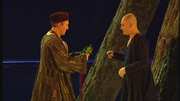
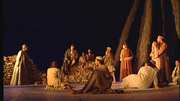
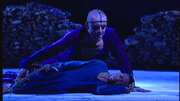
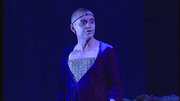
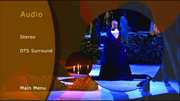
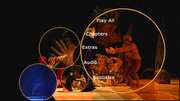






























Your Opinions and Comments
Be the first to post a comment!